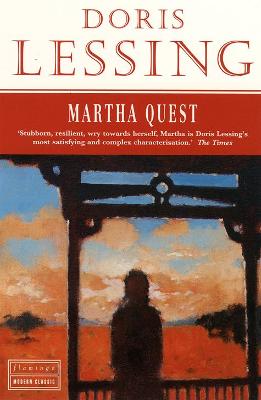Textplus
2 total works
The opening book in the Nobel Prize for Literature winner’s `Children of Violence’ series tracing the life of Martha Quest from her childhood in colonial Africa to old age in post-nuclear Britain.
When we first meet Martha Quest, she is a girl of fifteen living with her parents on a poor African farm. She is eager for life and resentful of the deadening narrowness of home, and escapes to take a job as a typist in the local capital. Here, in the `big city’, she encounters the real life she was so eager to know and understand. As a picture of colonial life, `Martha Quest’ succeeds by the depth of its realism alone; but always at its centre is Martha, a sympathetic figure drawn with unrelenting objectivity.
Martha’s Africa is Doris Lessing’s Africa: the restrictive life of the farm; the atmosphere of racial fear and antagonism; the superficial sophistication of the city. And both Martha and Lessing are Children of Violence: the generation that was born of one world war and came of age in another, whose abrasive relationships with their parents, with one another, and with society are laid bare brilliantly by a writer who understands them better than any other.
The landmark novel of the Sixties - a powerful account of a woman searching for her personal, political and professional identity while facing rejection and betrayal.
In 1950s London, novelist Anna Wulf struggles with writer's block. Divorced with a young child, and fearful of going mad, Anna records her experiences in four coloured notebooks: black for her writing life, red for political views, yellow for emotions, blue for everyday events. But it is a fifth notebook - the golden notebook - that finally pulls these wayward strands of her life together.
Widely regarded as Doris Lessing's masterpiece and one of the greatest novels of the twentieth century, 'The Golden Notebook' is wry and perceptive, bold and indispensable.

